THANKS TO THE GENEROSITY OF AMERICAN EXPRESS, WE HAVE THE OPPORTUNITY TO SUPPORT THESE BRILLIANT YOUNG SOCIAL ENTREPRENEURS INNOVATING IN THE NONPROFIT SECTOR.
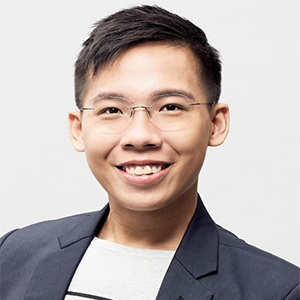
Edward Yee is the Co-founder of Givfunds, a foundation that lends low-cost loans to social entrepreneurs in South Asia. To date, the organization has impacted over 40K lives and helped innovators generate an additional $8M in revenue.
Q: What inspired you to start Givfunds?
A: One experience early on which changed my perspective on life was a visit to a slum school in Bangladesh. Having run an edtech start-up, I have interacted with children in many classrooms. However, despite a classroom barely 10 square meters in size, children in the slum school were more enthusiastic than any I have encountered. The founder shared that they ran on a cross-subsidization model and all it took to educate a child was $2 a year, but they could not scale because of the lack of capital. My future travels from the slums of Bangladesh to the villages of India and the pagodas of Myanmar allowed me to speak with hundreds social entrepreneurs who are really capable, but, like the school, could not grow. These social enterprises solved solutions ranging from poverty and hunger to education and energy solutions. Many assume there are enough funds in the social sector, with donations growing YoY and the rise of impact investing. What they do not realize is that middle-sized social enterprises often do not have any access to these funds. This problem is known as the “missing middle.” This is the financing gap between $10,000 – $250,000 to which medium social enterprises have no access
Q: What do you value most as a leader?
A: Humility to learn and ambition to dream.
Q: What is your most pressing leadership challenge right now?
A: COVID-19 has gave us room to rethink the problem we are solving. We have since realized that the impact investing ecosystem in India is growing in an unhealthy manner with a lack of distribution along the risk/return spectrum, no impact being measured, little innovation, many silos, and little leadership. There has to be a realignment of incentives in order for the sector to truly drive impact. The pressing challenge is being able to be the industry leader pushing for change as a relatively small organization.
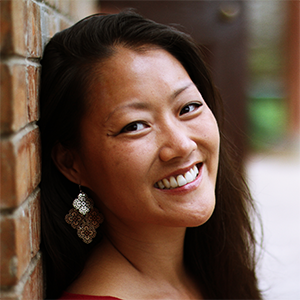
Amy Paulson is the CEO and Co-founder of Gratitude Alliance, an Oakland-based non-profit that works at the intersection of healing and social justice – helping to break generational cycles of trauma and harm, build individual and collective resilience and democratize access to healing resources.
Q: What inspired you to start Gratitude Alliance?
A: My work is deeply personal. It’s not just a passion. In truth, it’s the only way that I know how to make sense of the trauma and violence in my family: by healing it for myself and for others. When I was one day old, I was abandoned in Seoul, South Korea, taken to an orphanage where I lived with 200 other babies and 20 caregivers, and months later, adopted to America. I grew up with signs of trauma – suicidal depression, anxiety, and bulimia – all hidden behind my facade of an “overachieving perfectionist”. Decades later, I reunited with Korean family and learned that my mother was also an orphan. And, in fact, I come from a lineage of trauma due to war and gender violence. My family’s wounds never had a chance to heal before they were passed to the next generation. Suddenly, my pain wasn’t just about me. I realized that it was about a whole cycle of trauma that kept replaying itself over and over again – fueled by pain and silenced by shame. I now understood that my trauma story was actually a healing story. Not only had I survived – but I realized that my wounds gave birth to my superpowers: profound empathy, compassion, and connection to others in their pain and suffering, in their humanity. After this life changing experience, I left my career in corporate finance and started a nonprofit to support survivors around the world to break cycles of trauma and harm.
Q: What do you value most as a leader?
A: Radical authenticity. This means bringing one’s whole, complicated self to the job, admitting mistakes, reframing failures as learning opportunities, encouraging risk taking, holding space for complexity, encouraging difficult conversations with compassion and empathy, and modeling both self care and community care.
Q: What is your most pressing leadership challenge right now?
A: Leading the organization during a time of ongoing uncertainty, instability, and collective trauma due to COVID-19 and systemic injustice – while our staff and facilitators are stretched emotionally and in need of self care yet also want/need paid work, while our funding is drying up due to economic recession and funders tightening purse strings yet our work is so deeply needed in the world now, more than ever before.
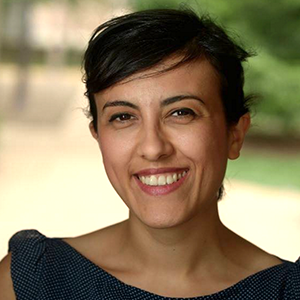
Gulcan Yayla the Co-founder of Kodluyoruz, working to make Turkey a worldwide talent hub for the technology sector while addressing youth unemployment and underemployment problems.
Q: What inspired you to start Kodluyoruz?
A: We are closing the skills gap in the tech sector. Receiving quality skill development education for decent employment should be the right of all, not a small priveledged group.
Q: What do you value most as a leader?
A: Integrity.
Q: What is your most pressing leadership challenge right now?
A: Should we keep growing fast and invest in our capacity like hiring great people, or hold back and grow in a more humble way?
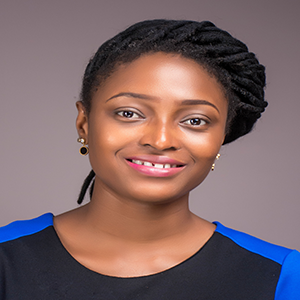
Ogholi Alero Sandra is the Founder of Rural Development and Reformation Foundation (RUDERF), a nonprofit committed to the development of rural and semi-urban communities in Nigeria through investment in human capital.
Q: What do you value most as a leader?
A: A genuine desire to create change. I have come to realize that despite challenges that life throws at us, when the innate desire to create change stays alive, hope stays alive and when hope stays alive, solution is birthed and the results are limitless.
Q: What do you hope to achieve by the end of this program?
A: To become the largest employer of marginalized females in Nigeria. One of our goals is to create jobs through the development of production factories in rural communities that employ 80% of marginalized women in order to improve the quality of their lives by giving them a stable source of income.
Q: What is your most pressing leadership challenge right now?
A: Most of our work is done physically in our rural entrepreneurship hubs and factories in local communities, where we work hand in hand with underserved women who have no access to technology. With the COVID-19 pandemic, it has become highly challenging to find ways to keep them actively engaged in our programs without endangering them. We are trying to find innovative ways to keep supporting our women beneficiaries in the new world we find ourselves in to prevent them from falling back into extreme poverty.
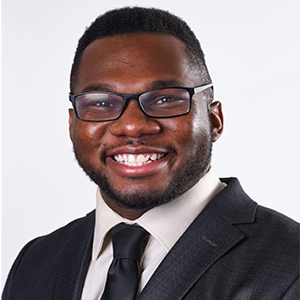
Derrin Slack is the Founder of ProAct Indy, an Indiana-based nonprofit that engages as-risk youth and corporations in public service projects. He has trained and led teams to engage over 25,000 boys and girls and corporate employees to value intentional community engagement and appreciate diversity and equity as an integral part of their lives.
Q: What inspired you to start ProAct Indy?
A: As a child, I overcame what I considered an embarrassing disability, stuttering, and as an adult, I have learned to use this disability to empower others through service learning and teaching youth and the adults who work alongside them that serving others is how we grow and lead in our communities. I firmly believe that it is important to build relationships and teach leadership through service, because vulnerable populations do not care how much you know, they want to know how much you care. After a life-changing experience on a mission trip to Botswana, Africa, I had a heart and vision to see youth and communities experience one another differently. Our mission is to stand in the gap for vulnerable populations by inspiring youth to transform communities through human-centered action. Leveraging social capital, we specialize in intentionally bringing together organizations in the city – helping groups cross social, racial, and economic boundaries. At a systems level, ProAct began not to create another dot on the map of nonprofit organizations doing great work, but rather to intentionally create an efficient system to connect the dots that already exist on the map to help sustain and amplify youth voice and action.
Q: What do you value most as a leader?
A: Faith, vulnerability, transparency, accountability, authenticity, learning.
Q: What is your most pressing leadership challenge right now?
A: The hardest part of using your life to solve a large problem is knowing when it is time to disconnect, so the most pressing leadership challenge I face is being able to have a decent work/life balance especially as I am leading my organization through a growth phase.